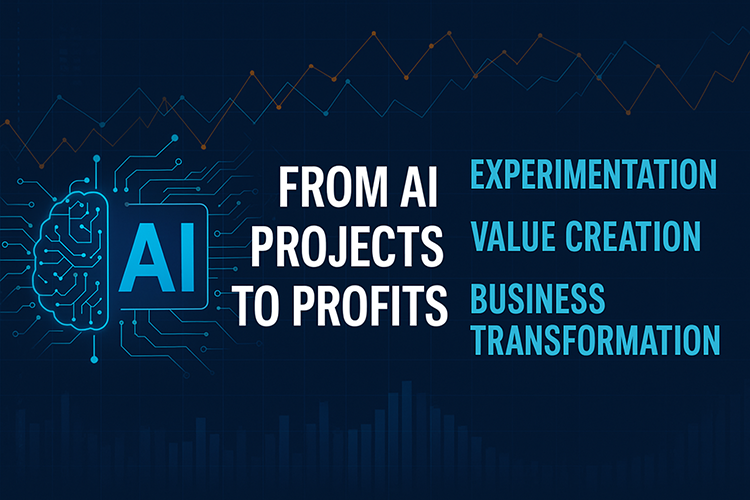Businesses struggle to turn AI projects into profits, report finds
A new report, From AI Projects to Profits, reveals that while artificial intelligence adoption is accelerating across industries, many organizations remain unable to translate pilot projects into sustained commercial returns. The findings highlight a persistent gap between experimentation and enterprise-wide value creation, underscoring the need for clearer strategies, scalable architectures, and disciplined execution.
The study notes that over the past five years, businesses have increasingly invested in AI proof-of-concepts, yet a significant proportion fail to advance beyond the pilot phase. Common barriers include a lack of alignment between AI initiatives and core business objectives, insufficient integration with existing systems, and underdeveloped capabilities for change management.
Even among organizations that have moved past experimentation, profitability remains uneven. Those achieving measurable returns typically share certain characteristics: executive-level sponsorship, cross-functional collaboration between business and technical teams, and an emphasis on solving well-defined, high-impact problems. Scalable data infrastructure and robust governance processes are also cited as critical enablers.
The report emphasizes that successful AI monetization requires more than technical excellence. Commercial success is tied to the ability to embed AI into products, services, and operations in ways that directly drive revenue growth, cost savings, or customer satisfaction. Companies that view AI as a “business transformation” initiative rather than a series of isolated technology projects tend to achieve faster and more consistent payoffs.
Sector-specific insights reveal varying maturity levels. Financial services and retail are among the leaders in moving from pilots to profit, often due to established analytics cultures and clearer use cases. In contrast, manufacturing and public sector organizations face longer timelines due to complex legacy systems and regulatory constraints.
The report concludes with a call to action for businesses to shift their focus from proof-of-concept to proof-of-value. By grounding AI efforts in measurable business outcomes, investing in scalable operating models, and fostering a culture of adoption, organizations can turn AI from a promising experiment into a sustainable driver of profitability.
Source: IBM









